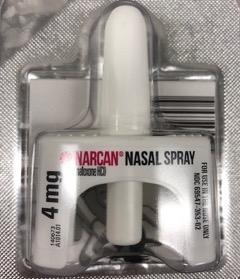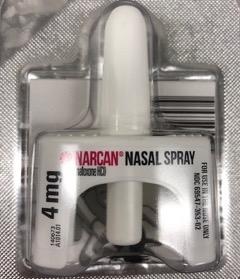‘Formula for Disaster:’ Opioid Overdoses Rise During COVID Crisis


As public health officials battle the COVID virus, another local epidemic is looming outside the spotlight—drug overdoses linked to opioid use.
Shelby County reported 391 suspected overdoses in the 30-day period ending last week, which is the highest monthly total since the Health Department began tracking data in 2019. Nearly 60 of these overdoses were fatal. Though the data is not specific to the type of drug involved in an overdose, health experts believe opioids are the leading cause.
Epidemiologist David Sweat says the increase, along with the range, is unprecedented. Cases don’t appear to just be concentrated in any one neighborhood or high-risk areas such as the Medical District or Midtown.
“This is all over the place. All at once. Simultaneously,” he says.
The COVID crisis has created challenges for those dealing with addiction, advocates say, whether it's sudden unemployment, or having extra money thanks to stimulus checks.
“So you’re looking at more finances,” says Josh Weil, an overdose specialist with the Memphis Area Prevention Coalition. “We’re looking at a lot of people not being at work, being isolated, a lot more time at home."
Weil says isolation can be overwhelming for people in recovery who rely on outside support from rehab clinics or weekly group meetings, now curtailed by social distancing.
“In-person meetings are much more effective than meetings over Zoom or you know, something online,” he says. “There are very few that are still open.”
Another factor likely driving overdoses is the kind of opioids available. The use of fentanyl, a cheaper and more deadly drug than heroin, has been on the rise in recent years.
“The problem is it’s so strong. If it’s just a little bit too strong, then we have a big problem...and we’ve got a lot more of it on the streets of Shelby County right now,” Weil says. “You mix all these things together, and it evidently is a formula for disaster.”
The Prevention Coalition is stepping up distribution of kits containing the overdose-reversal drug Narcan. The group plans to hand out around 3,000 doses of the nasal spray in the next week.
“[People] are much more likely to get help after we’ve been in contact with them because they know where to go,” Weil says. “When they’re ready, they’re still alive—that’s the point of giving them the Narcan.
Given the widespread geographic reach of recent overdoses, the Coalition’s challenge will be to get it directly into the hands of those who need it most.
“We’re willing to listen to any ideas of locations that we need to go to get this out there,” Weil says. “If you live in a neighborhood and you happen to know that there’s a dope house down the street, and there’s been four overdoses last month, then we need to get Narcan out there.”
The Memphis Area Prevention Coalition will distribute Narcan kits at 3628 Summer Ave. on Wednesday at 6:30 p.m. Check their website for additional resources.
 Pathways Drug Rehabilitation Luxury Addiction Treatment & Detox Center
Pathways Drug Rehabilitation Luxury Addiction Treatment & Detox Center


